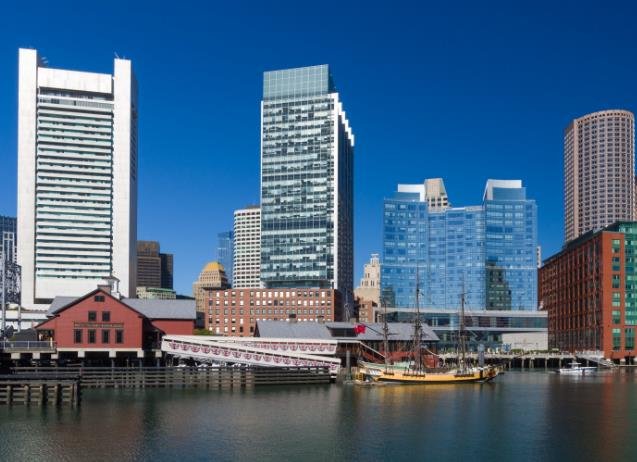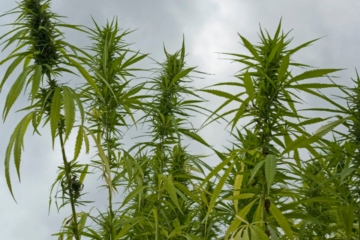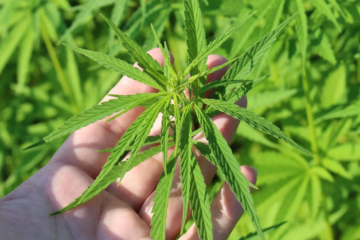Massachusetts lawmakers are pushing forward with new bills aimed at tightening regulations on hemp-derived intoxicating products. These items, often found in gas stations, vape shops, and convenience stores, have been causing a stir in the state as authorities seek clarity on their legality.
The state agencies have already labeled these products illegal, but they continue to surface on shelves, often sold outside the licensed dispensaries. Hemp-derived items, typically edible like gummies or candies, contain THC—the same active ingredient found in marijuana. However, due to their origin in hemp, they have escaped the same level of scrutiny that marijuana faces.
Hemp-Derived Products and the Loophole
At the heart of the issue is the 2018 federal Farm Bill, which legalized hemp cultivation across the United States. This bill removed hemp from the definition of marijuana, provided it contains less than 0.3 percent THC by volume. Hemp and marijuana come from the same plant, but the distinction made by this bill has created a grey area. While marijuana, which contains higher levels of THC, is still tightly regulated, hemp-derived products have largely flown under the radar.
For some business owners, the legality of selling hemp-derived products remains unclear. They argue that because hemp is federally legal, their businesses should be able to operate without state interference. After all, these products are made from hemp, which has been legalized at the federal level. However, Massachusetts state agencies are stepping in to ensure that these products are regulated properly.
In response, some lawmakers are now considering bills that would remove these hemp-derived products from the shelves of stores like gas stations and vape shops. Their goal is to ensure that intoxicating products are only available through the state’s regulated cannabis dispensaries, where strict controls are in place.

Why Are Lawmakers Concerned?
The main concern for lawmakers is consumer safety. Hemp-derived products, although often marketed as legal, can have unintended consequences when consumed irresponsibly. The THC levels in these products, though low, can still be potent enough to cause impairment. In many cases, consumers may not realize the effects until they’ve already ingested the product.
“There’s a real risk here,” said one Massachusetts lawmaker. “People aren’t getting these products in regulated environments where they can be properly informed and educated about dosage, potential side effects, and risks. We need to close that loophole.”
Additionally, public health experts have expressed concern about the availability of such products in non-regulated settings. Without the oversight seen in dispensaries, there’s little to ensure that these products meet safety standards, such as proper labelling, accurate THC content, or quality control.
The Business Angle: Economic and Legal Tensions
While lawmakers are keen on addressing safety concerns, some business owners see the potential legislation as an overreach. According to them, these products, which often come from outside Massachusetts, represent a growing market that provides jobs and economic benefits. For many of these small businesses, selling hemp-derived products is a source of revenue, and they argue that stricter regulations could hurt them.
“What scares me about regulating this is that sometimes we over-regulate and we put more problems on an industry,” said one local business owner who sells hemp-based products. They expressed worry that over-regulation could stifle the market and force smaller businesses out of the equation, leaving larger players in control. It’s a sentiment shared by many who see the legal cannabis market as already heavily regulated and structured in a way that’s challenging for small businesses to thrive in.
This divide—between lawmakers seeking tighter controls for safety and businesses concerned about their livelihoods—has led to heated debates in the statehouse. Some business owners are calling for clearer rules and more time to comply with any new regulations, arguing that current laws are too vague and need better clarification.
What Could the Future Hold?
As Massachusetts lawmakers continue to debate the issue, it remains uncertain what direction the state will take. Some bills are already on the table that would impose stricter controls on hemp-derived intoxicating products, possibly removing them from the unregulated market. It’s possible that these products will be limited to state-run dispensaries, where they would be subject to the same oversight as marijuana.
However, with the federal government’s stance on hemp still relatively loose, the situation in Massachusetts could set a precedent for how other states approach similar concerns. If Massachusetts moves forward with its regulations, it could spark a wave of legislation across the country, with other states seeking to tighten controls on hemp-derived products.
For now, the industry is left in a state of limbo. Hemp businesses are awaiting clarity, while lawmakers are weighing the potential public health risks against the economic implications. As the debate continues, the only certainty is that something needs to change to address this growing issue.



